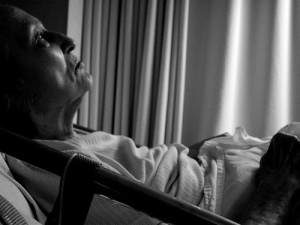
In our last blog post we talked a bit about signs that it might be time to consider assisted living for an aging loved one. In this post, we will talk a bit about Nursing Home Abuse and Elder Abuse. How often abuse occurs, what to be on the lookout for, and what to do if you think an aging loved one has been abused or is being abused.
Unfortunately, nursing home abuse and elder abuse are common and take many forms. According to the Office for Victims of Crime, roughly 5 million people over the age of 65 are victims of elder abuse or nursing home abuse each year. Abuse can be physical, psychological or sexual. Abuse can also take the form of neglect and financial exploitation. Abuse can come from anywhere, even friends and family members. Even more frightening is that only 1 in 24 cases of elder abuse or nursing home abuse is reported to authorities.
When it comes to physical, psychological or sexual abuse, as well as neglect, some things to lookout for include:
- Unexplained burns, cuts, bruises, and bleeding;
- Sprained or broken bones;
- Injuries that happen over and over;
- Torn or bloody clothes, especially underwear;
- Sexually transmitted diseases;
- Acting withdrawn or frightened;
- Being depressed, confused, or losing interest in things they once enjoyed;
- Weight loss and lack of appetite;
- Bedsores;
- Missing or broken dentures, eyeglasses, hearing aids, or walkers
Financial abuse, or financial exploitation, can be harder to spot. Especially if an aging loved one still manages their own bills and bank accounts. But it remains a major problem. No one knows the exact amount of money lost because of financial abuse, but as of 2010 it was estimated to be more than $2.9 billion a year; and people ages 65 and above are 34% more likely to lose money to financial fraud than people in their 40’s. Be on the lookout for:
- Withdrawals from bank accounts that your loved one cannot explain;
- Missing financial statements;
- Unpaid bills;
- A new “friend” who may be taking financial advantage of them;
- Signatures that seem to be forged
While there are many companies, organizations and individuals committed to providing quality care for elderly people, you should always be on the lookout for signs of elder abuse and nursing home abuse. If you see any of the above signs, first try talking privately with you loved one. If they refuse to answer your questions they may be victims of abuse. If they tell you that someone is hurting them, or you fear that they are in immediate danger call 911. If the problem isn’t urgent you should contact Adult Protective Services. They will send someone to check things out and take steps to make sure your loved one is safe. The contact information for their Pennsylvania office is below. Companies, organizations, and individuals will often deny that the above signs are because of abuse or neglect. If you have a loved one who you suspect is a victim of abuse, having a lawyer on your side that specializes in nursing home abuse and elder abuse cases should always be a priority.
Pennsylvania Adult Protective Services
Report Abuse of Seniors or Adults with Disabilities
Phone Number: 800-490-8505
 Pennsylvania Nursing Home Abuse Lawyer Blog
Pennsylvania Nursing Home Abuse Lawyer Blog

